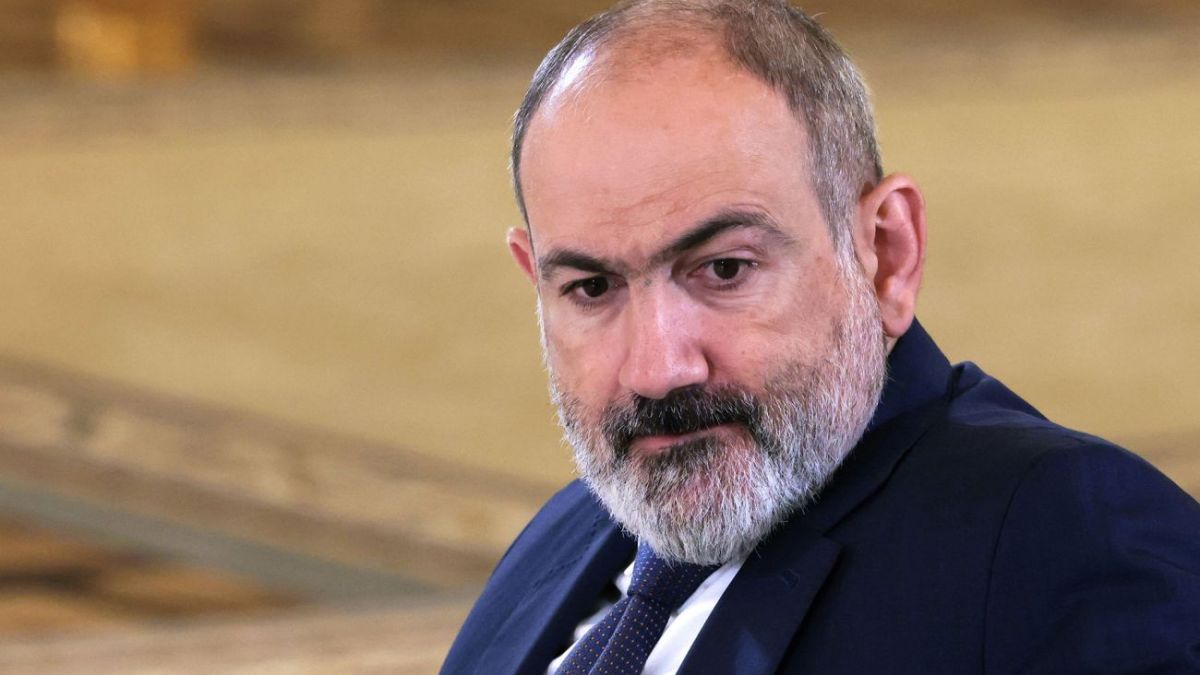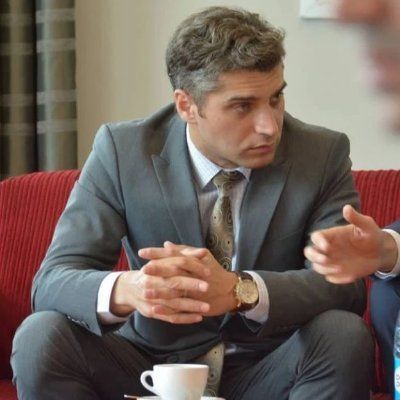Pashinyan throws dust in eyes of public with his 'peace' cliche

Pashinyan wants everything but peace. These views were reflected in the interview of the Presidential Representative for Special Assignments Elchin Amirbekov to the famous German newspaper Berline Zeitung.
Now a new public opinion is being formed - What is the reason for the delay of peace in the South Caucasus?
Armenian Prime Minister Nikol Pashinyan's statement that "We are ready to sign peace with Azerbaijan" is more like throwing dust in someone's eyes than reality.
When asked by a journalist how Baku feels about the statement by the Armenian ambassador to Germany that Armenia is ready to sign a peace agreement with Azerbaijan "as early as next Monday", Amirbekov responded that he very much doubts the sincerity of this statement. The proposal to sign an unfinished, half-baked agreement even tomorrow is not only unrealistic and unacceptable, but also misleading. The parties still have to agree on several important provisions of the draft agreement that remain open, without which the document will be raw and incomplete.
Let's take a look at the elementary constitution of Armenia, which reflects the territorial claim against Azerbaijan, and the position of official Yerevan on it.
According to Armenia, the constitution is its internal issue and this issue can be resolved only by the will of the people. In addition, Pashinyan states that the amendment to the constitution can be considered only when the next referendum is held in 2027.
Another issue is Pashinyan's approach to the implementation of clause 9 of the November 10 agreement, which creates a new atmosphere of tension between the next parties. Pashinyan claims that the November 10 agreement was considered valid as long as there were peacekeeping forces in Garabagh. However, since there are neither peacekeeping forces nor Armenians in Garabagh, according to Pashinyan, this agreement is considered void.
But what does international law say about it?
Territorial integrity refers to the territorial 'oneness' or 'wholeness' of the State. As a norm of international law, it protects the territorial framework of the independent State and is an essential foundation of the sovereignty of States. Moreover, Article 2.4 of the Charter of the United Nations provides – “All Members shall refrain in their international relations from the threat or use of force against the territorial integrity or political independence of any state, or in any other manner inconsistent with the Purposes of the United Nations.”
However, despite all these laws, Nakhchivan is still separate from Azerbaijan and is still under blockade. According to the laws, Armenia must open the Zangazur corridor, which unconditionally connects the mainland with Nakhchivan. This does not reflect Azerbaijan's territorial claim against Armenia, but instead implements international laws.
Despite all this, Azerbaijan does not want to stop peace talks with Armenia standing over Zangazur. Because, unlike Armenia, Azerbaijan is loyal to the peace agreement.
“Azerbaijan still attaches great importance to its opening, but by agreeing to its withdrawal from the framework of the peace agreement, it proceeded from the desire not to give our ill-wishers an extra reason to use the unresolved nature of this problem to criticize the Azerbaijani side as undermining the overall progress in the negotiations on the peace agreement,” Elchin Amirbekov added in his answer to the journalist’s question.
Thus, it can be concluded that the main problem preventing peace
is its constitution, which keeps Armenia's territorial claim
against Azerbaijan in permanent force. What is important for
Azerbaijan is for the Armenian side to give up these claims and
thereby make the peace long-lasting.
In response to a journalist’s question about whether, in order to
speed up the achievement of results, the parties agreed to put the
issue of opening the Zangazur corridor outside the framework of the
peace agreement, and whether it is possible to similarly postpone
the amendment to the Armenian constitution until, after the signing
of the peace agreement, the President’s representative responded
that it is absolutely wrong to draw a parallel between these two
issues, since they are completely different in their importance for
achieving lasting peace.
---
Elnur Enveroglu is AzerNews’ deputy editor-in-chief, follow him on @ElnurMammadli1
Follow us on Twitter @AzerNewsAz
Here we are to serve you with news right now. It does not cost much, but worth your attention.
Choose to support open, independent, quality journalism and subscribe on a monthly basis.
By subscribing to our online newspaper, you can have full digital access to all news, analysis, and much more.
You can also follow AzerNEWS on Twitter @AzerNewsAz or Facebook @AzerNewsNewspaper
Thank you!

